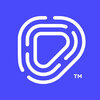Technical Support Executive
40+ Technical Support Executive Interview Questions and Answers for Freshers

Asked in Startek

Q. What is BIOS? Tell me about it.
BIOS stands for Basic Input/Output System. It is a firmware that initializes hardware during the boot process.
BIOS is responsible for performing a Power-On Self Test (POST) to check if all hardware components are functioning properly.
It also provides a set of low-level software routines that allow the operating system to communicate with hardware devices.
BIOS settings can be accessed and modified through a setup utility, which can be accessed during the boot process by pressi...read more

Asked in Startek

Q. How do you solve a system hang-up issue?
To solve system hang-up issue, try restarting the system, checking for malware, updating drivers, and freeing up disk space.
Restart the system and check if the issue persists
Check for malware and viruses using antivirus software
Update drivers for hardware components
Free up disk space by deleting unnecessary files and programs

Asked in Coresonant Systems

Q. Do you know CCTV configuration, and what are the basic things involved?
Yes
CCTV configuration involves setting up cameras, recording devices, and network connections.
Basic things include camera placement, resolution settings, frame rate, and storage capacity.
Other important aspects are configuring motion detection, scheduling, and remote access.
Examples of CCTV configuration tools are VMS software, IP cameras, and NVRs.

Asked in Coresonant Systems

Q. What equipment is needed to build an RFID gate and network?
RFID gates and networks require specific equipment for building.
RFID reader: to read the RFID tags attached to objects or individuals passing through the gate
Antennas: to transmit and receive RFID signals
RFID tags: attached to objects or individuals to be tracked
Network infrastructure: to connect the RFID readers and antennas
Power supply: to provide electricity to the equipment
Software: to manage and analyze the collected RFID data

Asked in Startek

Q. Why is RAM required in a system?
RAM is required in a system to store and access data quickly.
RAM stands for Random Access Memory
It is a volatile memory that stores data temporarily
The CPU can access data from RAM much faster than from a hard drive
The amount of RAM affects the system's performance
Multitasking is possible due to RAM
Examples of RAM include DDR3, DDR4, and SDRAM

Asked in Foundever

Q. What is wifi how do connect it
Wi-Fi is a wireless networking technology that allows devices to connect to the internet or communicate with each other wirelessly.
Wi-Fi stands for Wireless Fidelity.
It uses radio waves to transmit data between devices.
To connect to Wi-Fi, you need a Wi-Fi enabled device (e.g., smartphone, laptop) and a Wi-Fi network.
You can connect to a Wi-Fi network by selecting it from the available networks list on your device and entering the password if required.
Wi-Fi networks can be se...read more
Technical Support Executive Jobs




Asked in Startek

Q. What are the components of a CPU?
The CPU consists of three main components: the control unit, the arithmetic logic unit, and the cache.
The control unit manages the flow of data and instructions within the CPU.
The arithmetic logic unit performs mathematical and logical operations.
The cache is a small amount of memory used to store frequently accessed data.
Other components include registers, buses, and clock generators.
Examples of CPUs include Intel Core i7, AMD Ryzen, and ARM Cortex-A53.

Asked in Microland

Q. What is a Modem and how do you connect it to a Router?
A modem is a device that converts digital signals from a computer into analog signals for transmission over telephone lines.
Connect the modem to the router using an Ethernet cable
Configure the modem to bridge mode
Configure the router to use PPPoE or DHCP
Ensure the modem and router have different IP addresses
Test the connection by accessing the internet
Share interview questions and help millions of jobseekers 🌟

Asked in BRISK MIND

Q. How can technology improve the lifestyle of humanity?
Technology can improve lifestyle by providing convenience, efficiency, and connectivity.
Convenience: Technology allows for easier communication, access to information, and automation of tasks.
Efficiency: Automation and digital tools can streamline processes and save time.
Connectivity: Technology enables people to stay connected with others, access resources globally, and work remotely.
Examples: Smart home devices, online shopping, telemedicine, virtual meetings.
Asked in BRISK MIND

Q. How do you manage a bug or glitch on a real-time domain server?
To manage a bug or glitch on a real-time domain server, follow these steps:
Identify the bug or glitch by analyzing server logs and user reports.
Prioritize the bug based on its impact on server performance and user experience.
Develop a fix or workaround for the bug, ensuring it does not cause any further issues.
Test the fix in a controlled environment before deploying it to the live server.
Communicate with stakeholders about the bug and its resolution.
Monitor the server post-f...read more

Asked in EVE Technologies

Q. What is the difference between DELETE, DROP, and TRUNCATE in Database Management Systems (DBMS)?
DELETE removes specific records, DROP removes entire tables, and TRUNCATE clears all records quickly.
DELETE: Removes specific rows based on a condition. Example: DELETE FROM users WHERE age < 18;
DROP: Deletes the entire table structure and its data. Example: DROP TABLE users;
TRUNCATE: Removes all rows from a table but keeps the structure. Example: TRUNCATE TABLE users;
DELETE can be rolled back if used within a transaction, while DROP and TRUNCATE cannot.

Asked in Entab Infotech

Q. What do you understand by ERP? How does it help schools?
ERP stands for Enterprise Resource Planning. It is a software system that helps schools streamline their processes and improve efficiency.
ERP integrates various functions of a school such as admissions, attendance, finance, and HR into one system
It provides real-time data and analytics to help school administrators make informed decisions
ERP automates routine tasks, reducing manual work and human errors
It improves communication between different departments and stakeholders w...read more

Asked in Tech Mahindra

Q. What is customer support?
Customer support is the assistance provided to customers before, during, and after a purchase.
Customer support involves addressing customer queries and concerns
It includes providing technical assistance and troubleshooting
Customer support can be provided through various channels such as phone, email, chat, and social media
The goal of customer support is to ensure customer satisfaction and retention
Examples of customer support include helping a customer set up a new product, r...read more

Asked in Concentrix Corporation

Q. What is the difference between RAM and ROM?
RAM is volatile memory used for temporary storage while ROM is non-volatile memory used for permanent storage.
RAM stands for Random Access Memory and is used for temporary storage of data and programs while the computer is running.
ROM stands for Read-Only Memory and is used for permanent storage of data and programs that cannot be changed.
RAM is volatile memory, meaning it loses its contents when the power is turned off.
ROM is non-volatile memory, meaning it retains its conte...read more

Asked in Teleperformance

Q. The interviewer will start a story, and you will continue and finish it.
A technician discovers a mysterious device that can communicate with machines, leading to unexpected adventures.
The technician, Alex, finds an old device in the storage room.
Curiosity leads Alex to power it on, revealing a holographic interface.
The device starts communicating with the office machines, fixing issues autonomously.
As Alex explores its capabilities, strange glitches begin to occur in the office.
Eventually, Alex realizes the device is from a forgotten tech company...read more

Asked in Concentrix Corporation

Q. What is the difference between HDD and SSD?
HDD is a traditional storage device that uses spinning disks to store data, while SSD uses flash memory for faster access.
HDD is slower and more prone to mechanical failure than SSD
SSD is more expensive but offers faster read/write speeds
SSD is more durable and consumes less power than HDD
HDD is still commonly used for large storage needs, while SSD is preferred for faster performance
Examples of SSDs include Samsung 970 EVO and Crucial MX500, while examples of HDDs include Se...read more

Asked in Microland

Q. What is Router and how to configure it.
A router is a networking device that forwards data packets between computer networks. It connects multiple devices to the internet.
Connect the router to the modem using an Ethernet cable
Access the router's web-based setup page using a web browser
Configure the router's network settings, such as SSID and password
Set up port forwarding and other advanced settings if needed
Save and apply the changes to the router

Asked in Skilrock Technologies

Q. How do you check the space in a folder using Linux command line?
To check space in a folder of Linux cmd, use the 'du' command.
Open the terminal and navigate to the folder you want to check.
Type 'du -sh' followed by the folder name.
The output will show the total size of the folder in a human-readable format.
Asked in Xtracover.com

Q. How do you handle frustrated customers?
Empathize, listen actively, and provide solutions to frustrated customers to restore their confidence and satisfaction.
Stay calm and composed; your demeanor can influence the customer's mood. For example, if a customer is yelling, respond in a calm voice.
Listen actively to their concerns without interrupting. For instance, repeat back what they said to show you understand.
Empathize with their situation by acknowledging their frustration. You might say, 'I understand how this ...read more

Asked in Microland

Q. How do you troubleshoot routers?
To troubleshoot routers, start by checking the physical connections and power supply. Then, check the router settings and firmware.
Check physical connections and power supply
Check router settings and firmware
Reset the router to default settings if necessary
Check for firmware updates and install if available
Check for any network issues or conflicts
Contact the manufacturer or internet service provider for further assistance

Asked in Miko

Q. How many types of IOT devices are there
There are three main types of IoT devices: consumer, commercial, and industrial.
Consumer IoT devices: Smart home devices like thermostats, lights, and security cameras.
Commercial IoT devices: Smart meters, asset tracking systems, and connected vending machines.
Industrial IoT devices: Sensors and actuators used in manufacturing, agriculture, and healthcare.

Asked in Knowlarity

Q. What is a PRI in cloud telephony?
PRI in cloud telephony stands for Primary Rate Interface, a type of digital telecommunication service used to connect a large number of phone lines to the public switched telephone network (PSTN) in a cost-effective manner.
PRI provides 23 voice channels and 1 data channel for a total of 24 channels.
It is commonly used by businesses for high-volume voice communication.
PRI offers better call quality and reliability compared to analog lines.
It allows for features such as Direct ...read more

Asked in EVE Technologies

Q. What is a brief introduction to Java?
Java is a versatile, object-oriented programming language used for building platform-independent applications.
Object-Oriented: Java uses objects to represent data and methods, promoting code reusability. Example: Classes and objects in Java.
Platform-Independent: Java applications can run on any device with a Java Virtual Machine (JVM). Example: Write once, run anywhere.
Rich API: Java provides a comprehensive set of libraries for various tasks, such as networking, I/O operatio...read more
Asked in BRISK MIND

Q. What is a bug in a computer application?
A bug in a computer application is a flaw or error in the software that causes it to behave unexpectedly or not as intended.
Bugs can cause crashes, data loss, or incorrect output.
Common types of bugs include syntax errors, logic errors, and runtime errors.
Examples of bugs include a calculator app giving incorrect results, a game crashing unexpectedly, or a website not loading properly.

Asked in Knowlarity

Q. What is the difference between a virtual number and a DID?
Virtual number is a cloud-based number that forwards calls to another number, while DID is a direct inward dialing number that allows direct calls to a specific extension.
Virtual number is a cloud-based number that can be forwarded to any other number.
DID is a direct inward dialing number that allows direct calls to a specific extension.
Virtual numbers are often used for marketing or customer service purposes.
DID numbers are commonly used in business phone systems to route ca...read more

Asked in Foundever

Q. Talk any topics about covid
COVID-19: A Global Pandemic
Origin and spread of COVID-19
Symptoms and prevention measures
Impact on global economy and healthcare systems
Vaccine development and distribution
Mental health challenges during the pandemic

Asked in Microland

Q. How do you find an IP address?
To find IP address, go to command prompt and type 'ipconfig' for Windows or 'ifconfig' for Mac/Linux.
Open command prompt/terminal
Type 'ipconfig' for Windows or 'ifconfig' for Mac/Linux
Look for 'IPv4 Address' or 'inet' in the output
Alternatively, search 'what is my IP address' on Google

Asked in HDFC Bank

Q. What is your goal?
My goal is to provide exceptional technical support, ensuring customer satisfaction and continuous improvement in service delivery.
Deliver timely and effective solutions to customer issues, like resolving software installation problems quickly.
Enhance customer experience by actively listening and empathizing with their concerns, ensuring they feel valued.
Continuously improve my technical skills through training and certifications, such as obtaining a CompTIA A+ certification....read more

Asked in Knowlarity

Q. What is a click-to-call solution?
Click to call solution is a technology that allows users to initiate phone calls by clicking on a button or link.
Enables users to easily connect with customer support or sales representatives
Commonly used in websites and mobile apps
Improves customer experience by providing instant communication
Examples include ClickDesk, CallRail, and Twilio's Click to Call feature

Asked in Knowlarity

Q. How do you perform native integration?
Native integration involves connecting two or more software applications without the need for additional middleware.
Identify the APIs or protocols supported by the applications you want to integrate
Develop custom code to establish communication between the applications
Test the integration thoroughly to ensure data flows accurately and securely
Interview Questions of Similar Designations
Interview Experiences of Popular Companies





Top Interview Questions for Technical Support Executive Related Skills

Calculate your in-hand salary
Confused about how your in-hand salary is calculated? Enter your annual salary (CTC) and get your in-hand salary


Reviews
Interviews
Salaries
Users










